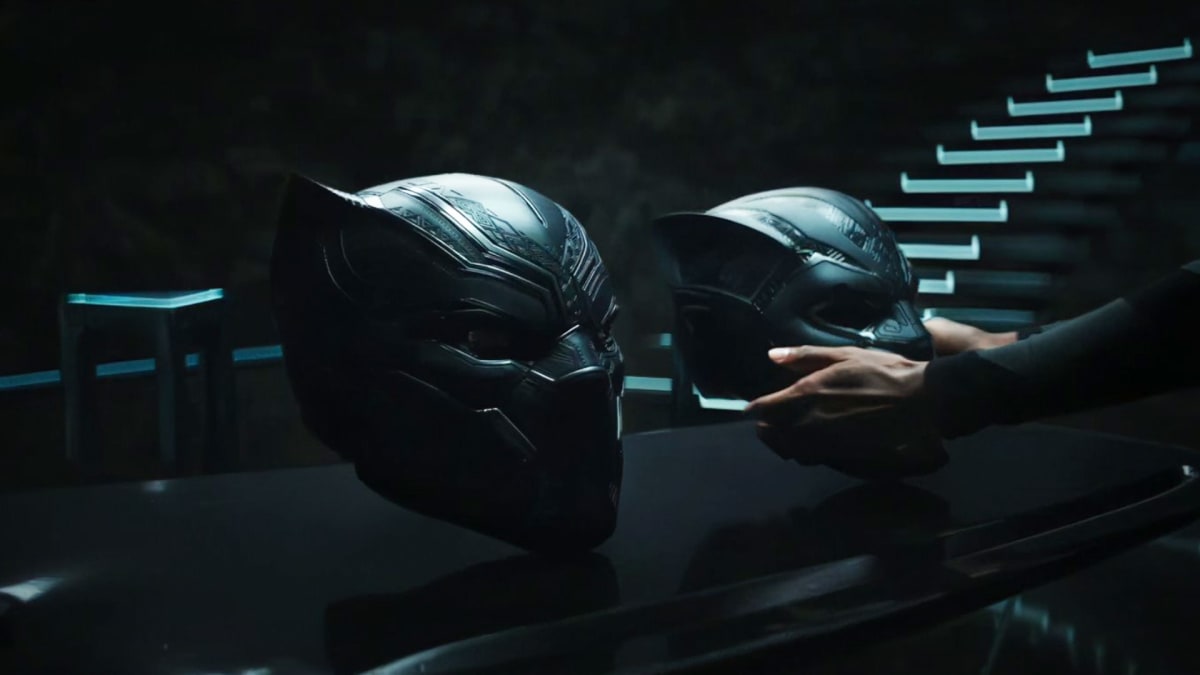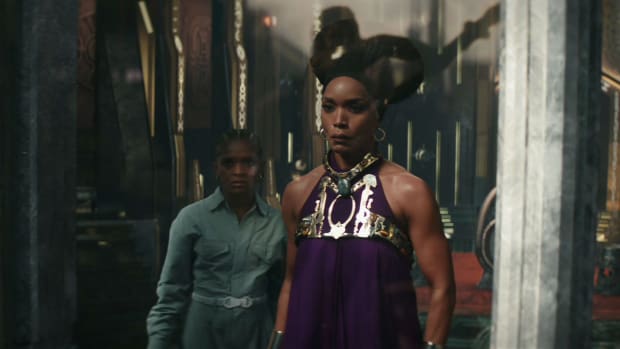
The 2020 death of Chadwick Boseman from colon cancer was one of the most shocking and heartbreaking losses in recent entertainment memory.
Boseman wasn’t just a great, authoritative and emotive actor; his film roles made him an icon of black excellence and a hero and inspiration to many. In the hands of Boseman, Black Panther wasn’t just one of Marvel’s greatest heroes, he was a symbol of black pride and resistance, and a beacon of hope.
His loss continues, and will continue, to resonate through the culture, particularly in Disney’s Marvel Cinematic Universe.
Boseman was one of Marvel’s greatest actors and heroes, and he remains irreplaceable. Disney (DIS) wisely decided against recasting the role of King T'Challa for the follow-up, instead choosing to have a different character pick up the mantle of the protector king of the hidden African village of Wakanda.
Director and screenwriter Ryan Coogler and co-screenwriter Joe Robert Cole don’t shy away from the loss of Boseman’s in their follow-up film “Black Panther: Wakanda Forever,” which is about many things, but is first and foremost about grieving the loss of a family member.
The ‘Black Panther’ Follow-Up Has A Lot To Live Up To
In a memorial video honoring Boseman’s passing, Robert Downey Jr., a man who admits he does not suffer from a surefit of modesty, called “Black Panther” the crown jewel of the Marvel Cinematic Universe, and he’s not wrong.
Frequently considered one of the best, if not the best, superhero films of all time, “Black Panther” made a record setting billion dollars, became the first superhero film to be nominated for a Best Picture Oscar, and won three, for costume design, production design and original score. The film became a cultural touchstone, particularly for black audiences, and also disproved the notion that films with people of color in the lead couldn't rake in blockbuster numbers.
Following up a cultural phenomenon such as “Black Panther,” while finding a way to honor Boseman is no easy task. Coogler was given more artistic freedom than most from Disney, and was able to create an afro-future blending of tribal symbolism and heady sci-fi utopia the likes of which the film world had never seen before. Also, there were war rhinos. Don’t forget the war rhinos.
But it’s still a Marvel film, and there are still certain story beats, action set pieces and MCU tie-ins that the audience will demand, and Coogler had the task of both selecting a new Black Panther, and introducing a long-standing Marvel antagonist and explaining their back story.
It’s also the case that “Black Panther: Wakanda Forever” is touted as the culmination of Marvel’s 4th Phase, a slate of films and TV shows that began with the release of 2021’s “Black Widow.” These films have introduced a lot of new characters, but have also been criticized for making the MCU feel a bit directionless compared to previous phases.

Disney
What Are Critics Saying About ‘Black Panther: Wakanda Forever’?
Most of the plot details of “Black Panther: Wakanda Forever,” were kept heavily under wraps, except for the news that the film would deal with King T'Challa’s passing, and that it would introduce the character Namor, who would seek to either become an ally to Wakanda in its attempts to protect its resources from exploitation from the outside world, or perhaps a dangerous foe.
Introduced in 1939 (and two years before Aquaman), Namor is the super powered King of the underwater kingdom of Atlantis. He’s one of Marvels’ oldest characters, and one of its first anti heroes. Namor has been both a hero and a villain throughout Marvel history, as he will do what it takes to defend his home country. (In one storyline, he flooded Wakanda. But it got better.)
Here he’s being portrayed by actor Tenoch Huerta Mejia, and Atlantis has been changed to the undersea kingdom Talokan, which has been given a Spanish identity. So it's a real nation versus nation situation this time around.
It's also been revealed that the film will introduce the character of Riri Williams, a teenage genius who builds their own set of armor, becomes the hero Ironheart, and who will get their own Disney+ show next year.
So there’s just a lot of Coogler to get done with this film. But while some critics think the film can feel a bit overstuffed, and at times drags a bit because of the nearly three hour run time, it’s generally getting praised as a fitting tribute to Boseman’s legacy.
The Hollywood Reporter praises the film's emotional weight, and lauds the increased presence of Angela Bassett's Queen Ramonda.
Slate's Dana Stevens also lauds the films emotional complexity and willingness to let its characters grieve.
Variety is impressed with the combination of tones here, noting "Coogler stages less a typical Marvel movie than an intricately doom-laden geopolitical thriller."
Oprah liked it!
Time thinks the film is great, but there's no getting around the fact that Boseman's loss is felt throughout.
Geeks of Color declares it one of Marvel's best.
The Mary Sue found itself deeply moved, so maybe plan to bring some tissues.







